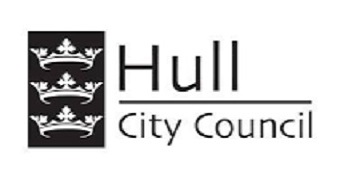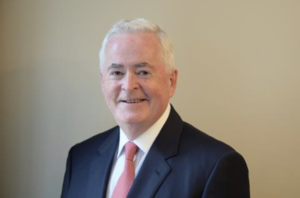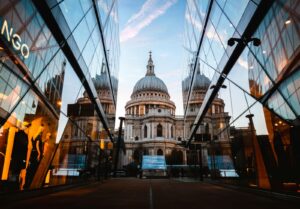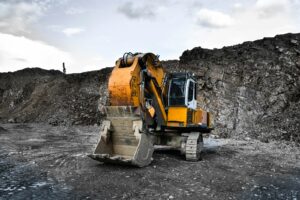Is a people’s powerhouse for the north possible?
 The People’s Powerhouse event in Doncaster last week discussed a more inclusive approach to local economies in the north of England. Ben McCall was there.
The People’s Powerhouse event in Doncaster last week discussed a more inclusive approach to local economies in the north of England. Ben McCall was there.
Ross Jones, elected mayor of Doncaster and her chief executive Jo Miller, opened the People’s Powerhouse conference last week, an event that was prompted by a ‘boys-club-big-corp-regen’ critique of the Northern Powerhouse.
A total of 300 people attended the day-long event, whose sponsors ironically included Capita and PriceWaterhouseCoopers, but which had representation from all sectors across the north and ranging from council chief executives and senior corporations to voluntary service organisations and – a few – young people.
Given that many of those present have been around long enough, the lack of overt deja-vu remarks was either testament to the ‘lack of cynicism’ (the official position) or desperation for this – or any initiative in response to the post-2016 shocks and 2017 UK election – to work.
Being the north, it was partly a day of what could be described as ‘organic stand-up’.
First up was Lord Adebowale. The proud Wakefield lad mixed autobiographical wit with closely observed critique. ‘Grenfell underlines a systemic failure and the disconnect between people and their civic institutions’, he said. ‘The cost of poverty is billions, poor people live and die expensively.’ Services designed with users are more effective and cheaper to deliver, he added, and his solution for the future was social enterprise, delivering benefits for people, the environment and making profits for communities.
Peter Holbrook of Social Enterprise UK quoted Ed Miliband, speaking at the event dinner the previous evening: ‘As minister then leader we knew the scale of the challenges was massive, the problem was our ideas were not.’ A plea for much more use of the social value act to tackle ‘global economic inequality that is reaching catastrophic proportions’ and he proposed ‘taking back control in a socially progressive way’.
He described himself as ‘agnostic’ on growth, which he said ‘is only good if it is shared – which it hasn’t been to date.’
Andy Burnham, mayor of Greater Manchester, expressed his ‘frustration over the years at the gap between people’s needs and public policy’. It was unclear how, but he proposed equal gender representation; opening the doors to the people, especially the voices of the seldom heard; ‘when we’ve let them in, listen to them, no lip service’; and 5-10 year funding for the community and voluntary sector.
In my view, not shared by many in the audience, the ‘quite exciting’ rhetoric but utter vacuity and crushing banality of his speech, was sobering, considering he is a key figure in whatever ‘powerhouse’ emerges from this process.
Eighteen People’s Panels throughout the afternoon invited audience participation, but repeated decades-long habits of speakers dominating.
One session – chaired by a senior director at Capita – included the question ‘How can we coordinate resources and community assets across places to help tackle poverty, achieve social value and improve outcomes for people?’ but failed to even address let alone attempt to answer this.
Another session was led by retired senior civil servant and now volunteer dynamo, Isobel Mills of Leeds Community Homes. Human warmth, startling irreverence and ‘industrial language’ accompanied by an intense gaze and enthralling seminar-choreography, demanded her audience’s attention and participation.
Most importantly, of course, was the content. The story of Leeds Community Homes is one of small beginnings turning into significant development, building genuinely affordable housing and contributing to create communities that are balanced for the long term.
I also enjoyed hearing from Jayne Gosling of the Salford Poverty Truth Commission, who said: ‘Let’s see your social value CV Mr council / commissioner / funder! We need to be much more assertive about this.’
This was a positive day, even if one had to suspend disbelief around a number of key debates:
- There was no critique (by the organisers) of ‘growth’ itself – inclusive growth being dominant; there was a sense that if only ‘the people’ could be included everything will be ok
- There was a tetchy avoidance but, if pressed, denial of the power relationships and imbalances between and within sectors
- A faux naivete about a ‘lack of cynicism’, which translated as a failure to acknowledge or learn from previous community-oriented regeneration, previous calls for ‘people’s’ involvement and actual experience of community participation in, for example, New Deal for Communities
The best of this event was excellent and points to the need for systemic change and for that change to be owned by and benefiting ‘the people’. While we’re not there yet, some of the building blocks of a far better future for people and diverse communities are being laid.
Whether it will be able to influence the Northern Powerhouse boys’ club and indeed, whether that itself will be superseded by ‘events, dear boy, events’, time will tell.
- Ben McCall is chief executive of the Doncaster Central Trust CIC. He is writing here in a personal capacity.













